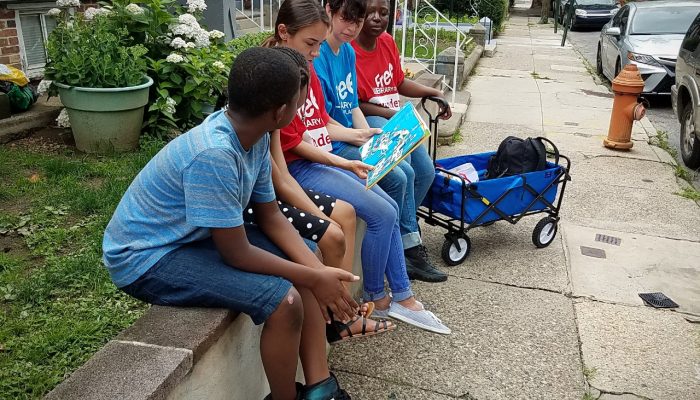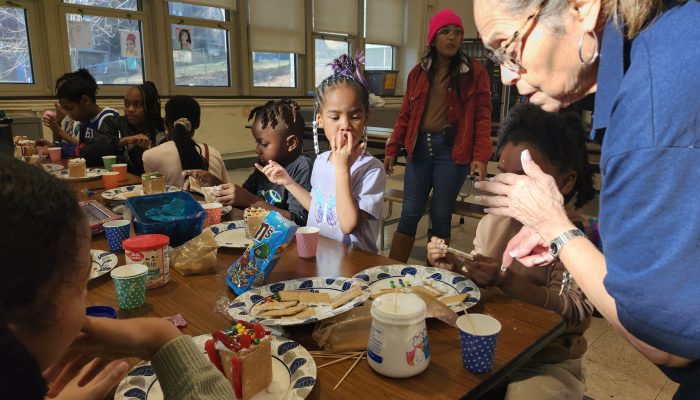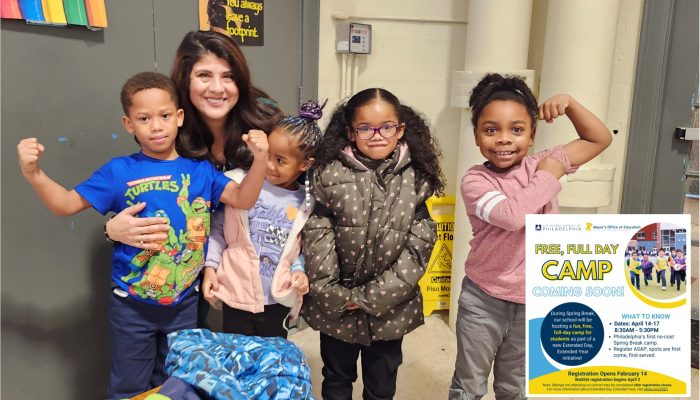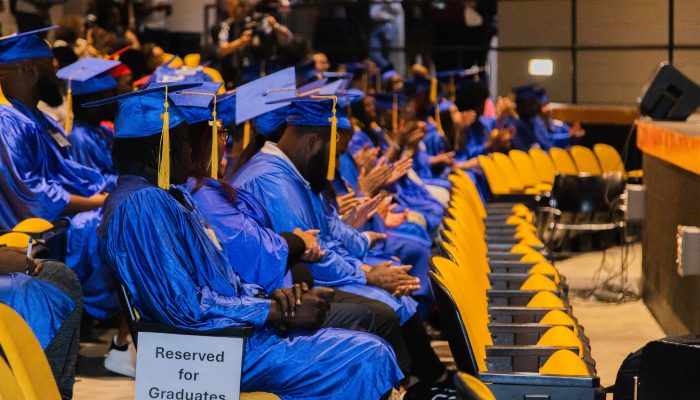It’s a midsummer Monday morning on Gratz Street in North Philadelphia. For the group of children gathered outside to play, it’s reading time.
Three literacy specialists from the Free Library of Philadelphia are stationed on the block with a wagon full of colorful books ready for pop-up reading sessions.
These summer-literacy resources are part of a pilot program from the City of Philadelphia to bring services directly to children living on or near Playstreets. The Playstreets program is operated by Philadelphia Parks & Recreation. It allows residents to close their block off to traffic on weekdays during the summer.
This new Playstreets of Wonder program brings resources for both educational and physical enrichment to the ten Playstreets selected for the pilot.
Over the past summer months, Play Captains from Fab Youth Philly and staff from the Free Library of Philadelphia, along with officers from the Police Athletic League have visited these streets to offer children guided reading, games and activities.
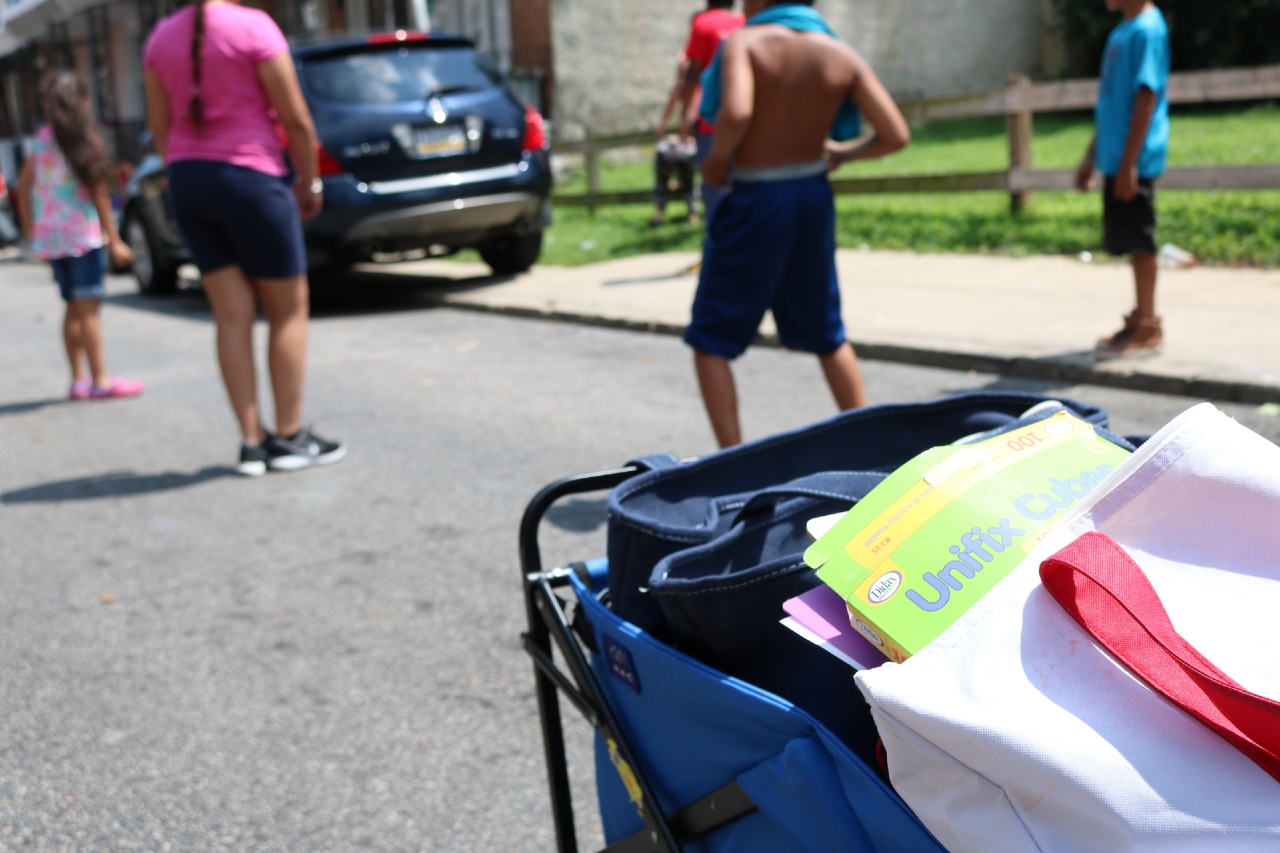
The two-year pilot, funded by a grant from the William Penn Foundation, aims to create and test a model of this approach for delivering these services to children. The Citywide Out-of-School Time Initiative leads this project in partnership with Philadelphia Parks & Recreation, Free Library of Philadelphia, Police Athletic League (PAL), and Fab Youth Philly.
The additional services are designed to help children prevent summer learning loss — particularly for those who are home during the day and might not receive help elsewhere, such as in a summer camp.
Playstreets also serve as a summer meals site for children and youth — an important factor for children who rely on school meals during the rest of the year. Each block has a playstreet supervisor who helps distribute free lunch and snacks Monday through Friday.
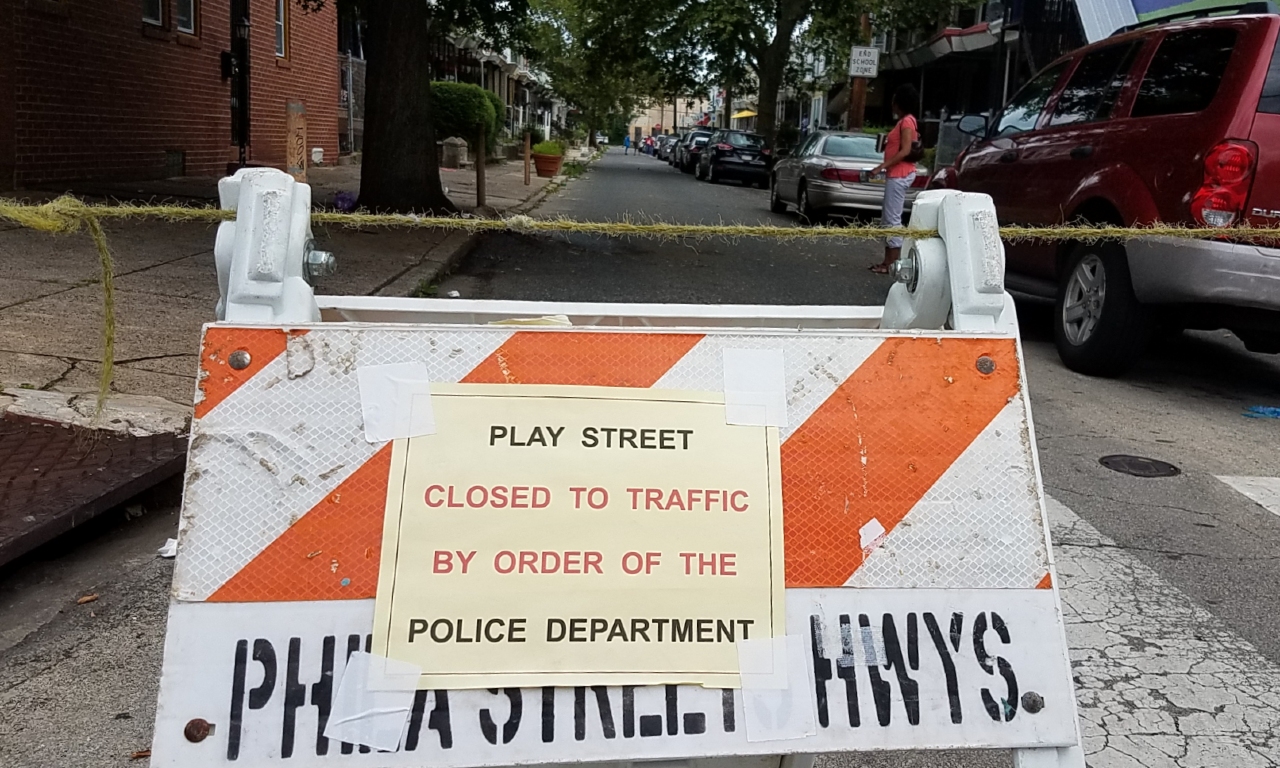
Partnering for good
Partners from City departments and community-based organizations came together to design and implement a coordinated approach to delivering these services on-site.
All of the Playstreets of Wonder partners are part of the Read by 4th Campaign, whose mission is to have more Philadelphia children reading at grade level before they enter 4th grade. And making summer reading more accessible is a big part of that mission. “We know it’s important for children to stay connected to reading during the summer time to stop the ‘summer slide’ – this conjoined effort is an excellent way to provide access to free, quality reading support,” said Jenny Bogoni, Read by 4th’s Executive Director.
The Free Library of Philadelphia collaborated on the project by bringing teams of reading specialists out to the blocks to engage with children and offer summer reading resources.
“This is exactly what they need, these children on this block,” said Samantha Parrish, mother of a child visiting the Playstreets, “I was going to sign my daughter up for a reading program elsewhere, but it’s very convenient to have it here on the street. She’s comfortable here in her own environment.”
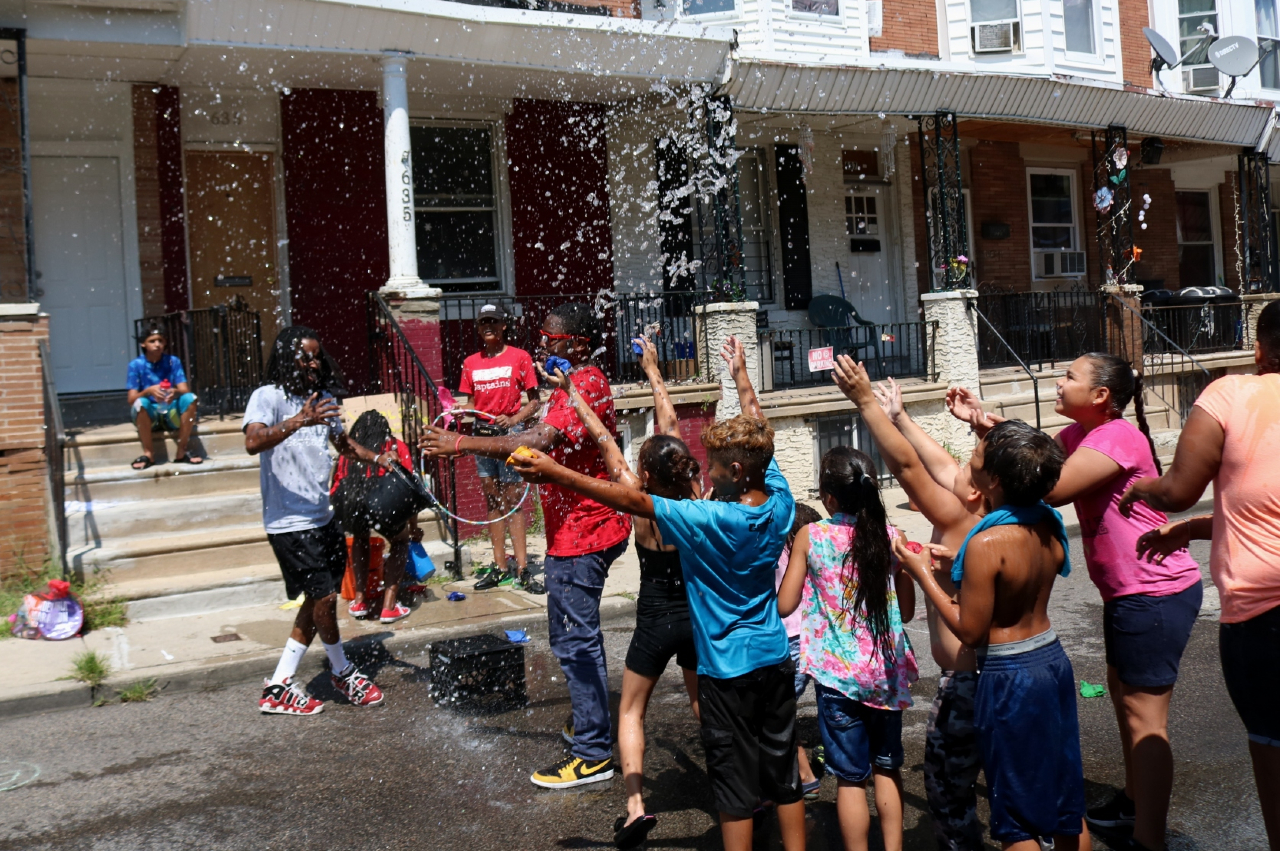
“Being welcomed into communities and getting to know children and families on the Playstreets was an amazing part of this project,” said Ann Pearson, Free Library of Philadelphia’s Summer Learning Manager. “Access to books and learning resources during the summer can help prevent learning loss. And this summer we were able to give out over 3000 books on the Playstreets,” Pearson said.
Playful Learning
On another hot summer day, Fab Youth Philly’s Play Captains were on a block in Kensington preparing a number-focused, dunk-tank activity for a group of 12 children from the neighborhood.
Fab Youth Philly’s Play Captains are teams of teens and young adults hired, through WorkReady Philadelphia, to work on the Playstreets. The teams of youth facilitate “guided playful learning” with younger children, building excitement with group games and activities. A key component of Playful Learning is incorporating literacy and numeracy into play.
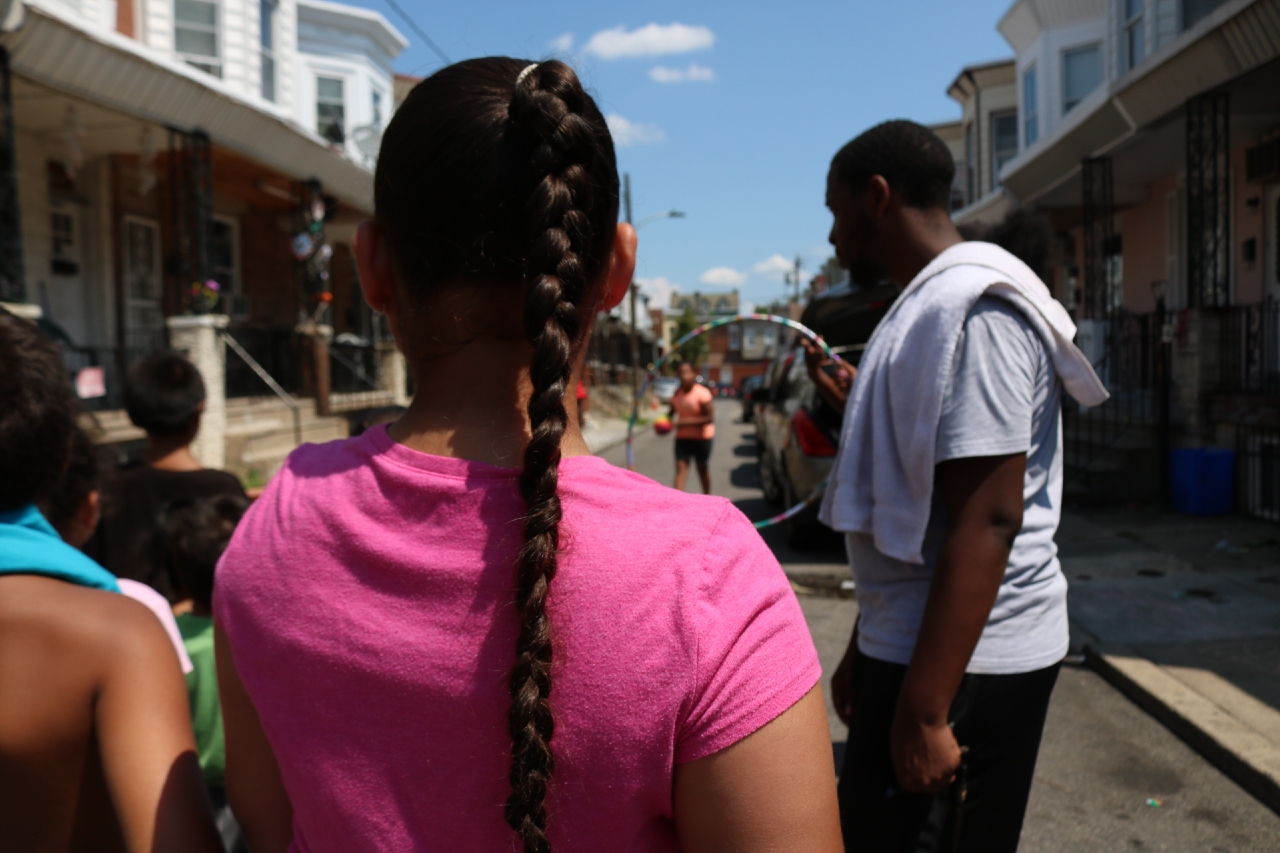
Researchers from Temple University’s Playful Learning Landscapes Initiative created a data collection tool for this project which measures Playful Learning by tracking children’s engagement in activities, as well as monitoring “healthy-mentoring relationships”. The researchers (led by Molly Schlesinger, PhD.) trained partners in measuring these elements.
Police Athletic League (PAL) officers also served the Playstreets of Wonder blocks. PAL officer Raymond Heim had this to say about the experience: “We had one really amazing block, East Wensley Street. The Playstreet captain was out all day interacting and promoting the PAL officers to the kids, getting them involved.”
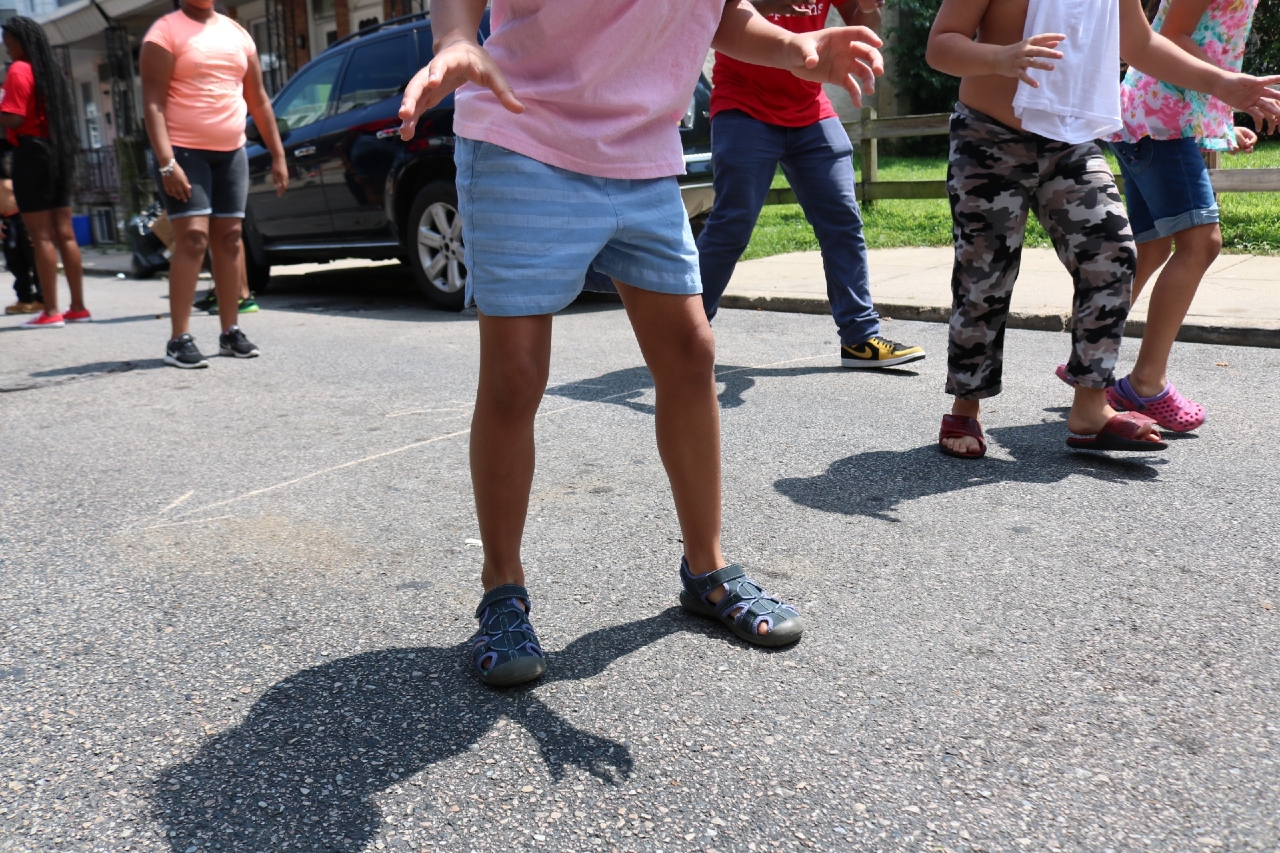
The officers brought their PAL programming of sports and group games to the streets with added numeracy components for math support.
“The kids loved the games, a fun, fast-moving 45 minutes to an hour of Dodgeball, touch football, washer toss. We’d have them do some math with the scores,” said Heim, “we built a great bond with the kids. They were there waiting for us every day.”

